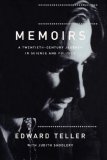Summary | Excerpt | Reviews | Readalikes | Genres & Themes | Author Bio

Critics' Opinion:
Readers' Opinion:
First Published:
Oct 2001, 544 pages
Paperback:
Sep 2002, 627 pages
The next spring, my father took Emmi and me on a long walk in the mountains of Buda. On the slopes of the triple-peaked Harmashatarhegy, we came upon some trenches. My father explained that they had been dug as a defense against the Russians. Suddenly, the war looked very different. On the map in my father's office, I had seen the Russians crossing the Carpathian mountains in the east. The trenches we saw in the mountains that day were west of the Danube. If our soldiers had had to fight there, our house and the homes of all my friends would already have been captured.
My desire to know more about war grew. At home, we had an illustrated history of Napoleon's campaigns. I remember learning that the huge army that had marched into Russia had left in a terrible retreat. The soldiers bled, they froze, they starved. Only a few returned. On Sundays in winter, my father took Emmi and me to the main park in Budapest, which had a zoo and an art gallery. I remember seeing paintings of battles: wounded men and horses intermingled in agony. They held me in horrified fascination. My father had clerks working in his office in our home, young men fulfilling a four-year-long internship before opening their own practices. One of them, Joseph Bard (who knew and later married the American reporter Dorothy Thompson), came back from the war with terrible stories. I was bothered by his seeming lack of patriotism and by the doubts he cast on the effectiveness of our armies.
A special teacher, a British subject, whom my mother hired for a short time to give Emmi and me English lessons, challenged my patriotism even further. The tutor was furious about the war and blamed Kaiser Wilhelm for starting it. His comments about the kaiser, who I knew had often rescued Hungary, upset me. So when the tutor used a somewhat objectionable word for fool in connection with the kaiser, I returned the favor by using the same word in connection with the British. Much to my amazement, my parents were not at all upset by his behavior-only about mine.
However, about the middle of the war, I realized that the Austro-Hungarian armies always seemed to lose. First, we invaded Serbia, but had to retreat. We fought the Romanians when they invaded Transylvania, but the Germans had to come to our rescue. We fought the Italians, and we were beaten again. When the Germans defeated the Russians in 1914, I had thought that the war was as good as won; I was surprised, then, to realize a few years later that we were going to lose.
By the summer of 1918, everyone was desperately eager to have an end to the war. I remember two riddles popular during the final months of the war. The first described countries: What is the difference between England, Prussia, and Austro-Hungary? In England, everything is permitted except for a few things that are forbidden. In Prussia, everything is forbidden except for a few things that are permitted. In Austro-Hungary, everything that is forbidden is permitted.
The second riddle circulated about two weeks before the surrender. How is the war going? In Berlin, the situation is serious but not desperate. In Vienna, it is desperate but not serious. That was the atmosphere in Budapest as well.
Just before war ended in 1918, an independent republican government was formed under Mihaly Karolyi, who, I believe, was a Social Democrat, politically to the left. People walked the streets wearing tiny chrysanthemums in their buttonholes, and soldiers marched with flowers in their gun barrels. The blossoms were the symbol of a largely peaceful revolution, the Revolution of Autumn Roses.4 Franz Joseph's successor, Emperor Charles, finally acceded to popular demands for a new cabinet. The event marked the beginning of an independent Hungarian republic.
During the fall of 1918, I began my second year of gymnasium studies.5 The only good thing about school, as far as I was concerned, was the mathematics class. A few years earlier, I learned that what I had been doing in my nighttime game should be done on paper and should be correct. I practiced both on paper and at night, so I had become a good and fast calculator, a type of childhood distinction that has completely disappeared with the advent of hand calculators.
From Memoirs by Edward Teller. Copyright 2001 Edward Teller. All rights reserved. No part of this publication may be reproduced or stored in any form without the prior written permission of the publisher, Perseus Books.





The House on Biscayne Bay
by Chanel Cleeton
As death stalks a gothic mansion in Miami, the lives of two women intertwine as the past and present collide.

The Flower Sisters
by Michelle Collins Anderson
From the new Fannie Flagg of the Ozarks, a richly-woven story of family, forgiveness, and reinvention.

The Funeral Cryer by Wenyan Lu
Debut novelist Wenyan Lu brings us this witty yet profound story about one woman's midlife reawakening in contemporary rural China.
Your guide toexceptional books
BookBrowse seeks out and recommends the best in contemporary fiction and nonfiction—books that not only engage and entertain but also deepen our understanding of ourselves and the world around us.